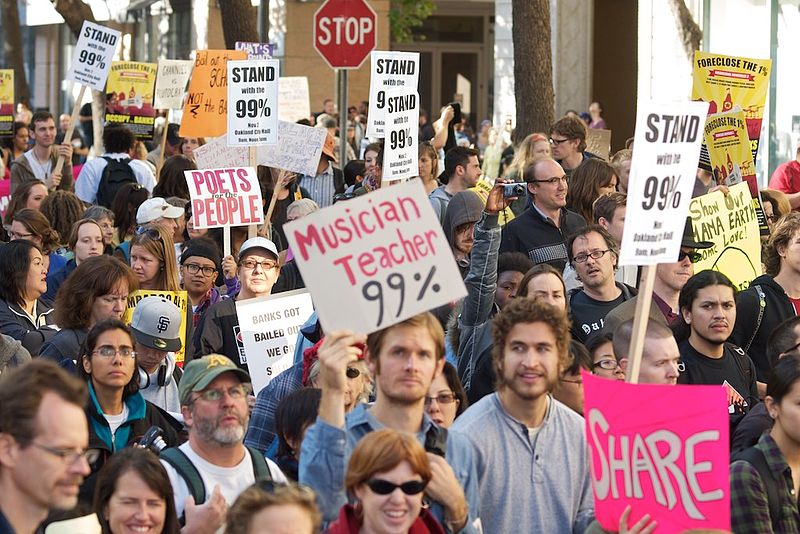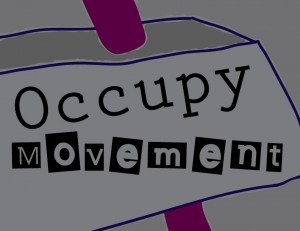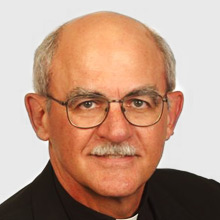“The voiceless finding a voice” | Oakland Occupy Movement
BY ISN STAFF | April 30, 2012
Written by: Joe Hoover, S.J.
In late January, Occupy Oakland held a march to “squat” in a vacant building in downtown Oakland and create an Occupy headquarters and community center. I live in nearby Berkeley and went and joined in. Eventually the march turned into a stand-off between Occupiers and the police, who in their riot gear were out in full force. I ended up getting arrested that day, charged with two misdemeanors and later convicted in a jury trial.
Movements are not always clean and pretty, and sometimes they grab you by the shirttails and take you for a ride you didn’t intend to go on. But a few days in jail seems to be a small price to pay. At its high point last fall, Occupy Wall Street had inspired twenty six hundred Occupy communities across the world. Oakland has been one of the most active and dynamic, and it has been a privelege to be a small part of it. To get taken on the ride, as it were.
Occupy has its critics. Who are your leaders? Why can’t you get more organized? Why are you so angry? You’re not diverse enough. What’s with the “camping out?” What are your exact demands? Every significant American grassroots movement has faced the same kinds of criticism, from abolition to child labor to civil rights to the anti-nuclear movement. And they all have achieved enormous transformations in American social and economic life.
As for what they want, it seems to me that Occupy’s demands are very simple: everything needs to change. Is that too much to ask? Currently it may ride on a wave of home foreclosures, a lack of jobs, shackling student debt. It all finally congeals on a scandalous inequity between rich and poor in the face of federal bank bailouts and record corporate profits. But ultimately Occupy is what movements for social justice have always been about: ordinary people claiming their power. The voiceless finding a voice. While the movement is not explicitly religious, it could even be said that it is like the prophets of old: crying out in public spaces for a releasing of those bound unjustly, a setting free the oppressed, a sheltering of the homeless, a clothing of the naked. Agitating for a time when we will not turn our backs on our own.
When the January march turned angry and confrontational, on both sides, it felt like it was time to go, and I almost did. But I decided to stay. It seems to me that as Jesuits we are really not allowed to leave places like that. You could say that we aren’t permitted–in our very by-laws, in clear directives from popes–to move casually away from conflict and even violence. If that sounds very grand, or self-congratulating, I apologize. But I don’t know how else to put it. We are always called to work for reconciliation. The idea for Jesuits–and for anyone inspired by St. Ignatius–is to witness to the divine, to hope, no matter where we find ourselves.
Joe Hoover is a Jesuit scholastic in his first year at Jesuit School of Theology, in Berkeley, CA. For more on his case, you can visit americamagazine.org/blog and read entries by James Keane, S.J.











Leave a Reply
Want to join the discussion?Feel free to contribute!